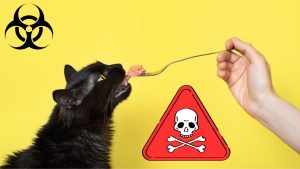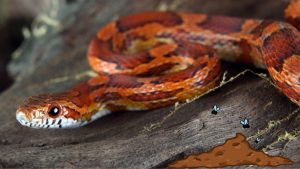As horse owners, we all want to provide the best possible care for our equine friends. One of the most important aspects of horse care is ensuring that they are fed a healthy and balanced diet. However, it’s not just about what we should feed our horses – it’s also important to know what foods and plants to avoid. Certain foods and plants can be toxic to horses and cause serious health problems or even death.
It’s important to note that horses have a unique digestive system that is different from other animals. This means that some foods and plants that are safe for other animals or even humans can be harmful or deadly to horses. As responsible horse owners, it’s our duty to educate ourselves on what foods and plants are poisonous to horses and take the necessary precautions to keep them safe. In this article, we’ll explore some common foods and plants that are toxic to horses and provide tips on how to keep your horses safe and healthy.
Common Poisonous Plants
As horse owners, it’s essential to be aware of the plants that are poisonous to horses. Many common plants found in pastures, gardens, and fields can be toxic to horses. In this section, we will discuss some of the most common poisonous plants and their effects on horses.
Poisonous Trees and Shrubs
Many trees and shrubs are poisonous to horses, and some can be deadly. Here are some of the most common ones:
- Red Maple: The leaves of the red maple tree are toxic to horses and can cause hemolytic anemia, which can be fatal. Symptoms include lethargy, dark urine, and rapid breathing.
- Oleander: All parts of the oleander plant are toxic to horses and can cause colic, diarrhea, and heart failure.
- Yew: The yew tree is highly toxic and can cause sudden death in horses. Symptoms include trembling, difficulty breathing, and convulsions.
- Black Walnut: The shavings from black walnut trees can be toxic to horses and can cause laminitis.
Poisonous Weeds
Weeds are a common sight in pastures and fields, and many of them can be toxic to horses. Here are some of the most common ones:
- Buttercups: Buttercups contain a toxin that can cause blistering in horses’ mouths and digestive upset.
- Nightshade: Deadly nightshade and other varieties of nightshade are toxic to horses and can cause colic, convulsions, and even death.
- Bracken Fern: Bracken fern contains a toxin that can cause thiamine deficiency in horses, which can lead to weight loss, weakness, and even death.
- Horsetail: Horsetail can be toxic to horses and can cause thiamine deficiency, which can lead to neurological problems.
- Milkweed: Milkweed is toxic to horses and can cause colic, muscle weakness, and even death.
It’s important to note that this is not an exhaustive list, and there are many other plants that can be toxic to horses. If you’re unsure whether a plant is safe for your horse to eat, it’s best to err on the side of caution and avoid it.
In conclusion, as horse owners, it’s crucial to be aware of the plants that are poisonous to horses. By knowing which plants are toxic and avoiding them, we can help keep our horses safe and healthy.
Fruits and Vegetables
When it comes to feeding our horses, we need to be careful about what we give them. Some fruits and vegetables can be toxic to horses and may cause serious health problems. In this section, we’ll discuss which fruits and vegetables to avoid.
Fruits to Avoid
While some fruits are safe for horses to eat, others can be harmful. Here are some fruits that you should avoid feeding your horse:
- Peaches: Peach pits contain cyanide, which is toxic to horses.
- Apples: While apples are generally safe for horses, the seeds and core contain cyanide and should be avoided.
- Apricots: Like peaches, apricot pits contain cyanide and are toxic to horses.
- Cherries: The pits and leaves of cherries contain cyanide and should be avoided.
Vegetables to Avoid
Just like with fruits, some vegetables can be toxic to horses. Here are some vegetables that you should avoid feeding your horse:
- Potatoes: Raw potatoes contain solanine, which is toxic to horses.
- Tomatoes: The leaves and stems of tomatoes contain solanine and can be toxic to horses.
- Garlic and onions: These contain compounds that can cause anemia in horses.
- Rhubarb: The leaves of rhubarb contain oxalic acid, which can be toxic to horses.
- Cauliflower, cabbage, and broccoli: These vegetables can cause gas and colic if fed in excess.
It’s important to note that bread, dairy products, and hotdogs should not be fed to horses. These foods are not part of a horse’s natural diet and can cause digestive problems.
Overall, it’s important to be cautious when feeding your horse fruits and vegetables. Stick to safe options and avoid anything that could be toxic or harmful.
Other Foods to Avoid
As horse owners, we need to be aware of the various foods that can be harmful to our equine friends. While some foods are obviously dangerous, there are others that may not be so obvious. In this section, we will discuss some other foods to avoid giving to horses.
Human Foods
It’s important to remember that horses have a very different digestive system than humans. Some human foods can be harmful to horses, and should be avoided. For example, chocolate contains theobromine, which can be toxic to horses. Caffeine is another substance that horses should not consume. Onions and garlic can also be harmful to horses, as they contain compounds that can damage red blood cells.
Bread is another food that is not recommended for horses. While it is not necessarily toxic, bread is high in carbohydrates and can cause digestive upset in horses. Hotdogs and other processed meats should also be avoided, as they are often high in sodium and preservatives.
Meat
While horses are herbivores, they may occasionally be fed meat by accident. For example, if a horse is given a feed that contains animal by-products, it may inadvertently consume meat. This can be harmful to the horse, as their digestive system is not designed to process meat. Additionally, horses that are lactose intolerant should not be given dairy products, as they can cause digestive upset.
In conclusion, it’s important to be mindful of the foods that we give to our horses. While some foods are obviously harmful, there are others that may not be so obvious. By avoiding the foods listed above, we can help keep our equine friends healthy and happy.
Symptoms and Treatment
When a horse ingests a poisonous plant or food, it can lead to a variety of symptoms. These symptoms can range from mild to severe and may include:
- Choke
- Gas
- Diarrhea
- Kidney failure
- Seizures
- Colic
- Anemia
- Constipation
- Urinary tract issues
- Calcium oxalate toxicity
- Digestive problems
If you suspect that your horse has ingested something poisonous, it is important to contact your veterinarian immediately. Early treatment can make a big difference in the outcome for your horse.
The treatment for a poisoned horse will depend on the type of poison ingested and the severity of the symptoms. In some cases, the veterinarian may need to induce vomiting to remove the poison from the horse’s system. In other cases, the horse may need to be hospitalized and given fluids and other supportive care.
In cases where the horse has ingested a plant that contains calcium oxalates, treatment may involve administering calcium to help counteract the effects of the toxin. In cases of kidney failure, the horse may need dialysis or other intensive treatments to help support their kidneys.
It is important to note that some poisons can have long-term effects on a horse’s health. For example, horses that have ingested large amounts of certain plants may develop chronic kidney disease. Additionally, some poisons can cause neurological damage that may not be immediately apparent.
In conclusion, if you suspect that your horse has ingested something poisonous, it is important to contact your veterinarian right away. Early treatment can make a big difference in the outcome for your horse.
Prevention and Management
As responsible horse owners, we must take necessary precautions to ensure that our horses are not exposed to poisonous plants and foods. Here are some ways we can prevent and manage the risks associated with toxic plants and foods.
Pasture Management
One of the most effective ways to prevent horses from ingesting toxic plants is to manage their pastures properly. This includes regularly inspecting the fields for poisonous plants and removing them immediately. We should also avoid overgrazing as it can lead to horses eating plants they would normally avoid. Fall is a great time to inspect pastures as many toxic plants are still visible even after they have lost their leaves.
Another way to manage pastures is to rotate grazing areas. This allows the grass to regrow and reduces the risk of horses grazing on harmful plants. We can also plant safe grasses, such as Timothy or Bermuda grass, to provide a safe and nutritious food source for our horses.
Companion Planting
Companion planting is another effective way to manage the risks associated with toxic plants. We can plant companion plants that repel or deter harmful plants from growing in the pasture. For example, planting horsetail around the edges of the pasture can help prevent the growth of other toxic plants. Similarly, planting clover can help provide a safe and nutritious food source for our horses while also deterring the growth of harmful plants.
It’s important to note that not all companion plants are safe for horses. We must do our research and consult with a veterinarian or equine nutritionist before planting any companion plants in our pastures.
By implementing proper pasture management techniques and companion planting, we can reduce the risk of our horses ingesting toxic plants and foods. Regular inspections, proper grazing management, and companion planting are all important steps in keeping our horses safe and healthy.
Conclusion
In conclusion, it is crucial for us as horse owners to be aware of the foods and plants that are harmful to our horses. By avoiding feeding our horses toxic substances, we can help maintain their health and prevent potentially life-threatening issues such as colic.
We must remember that horses are herbivores and their digestive systems are not designed to handle certain foods that we may consider harmless. For example, foods like chocolate and dairy products contain theobromine and lactose, respectively, which can cause digestive issues and even lead to colic in horses.
Similarly, certain plants like bittersweet and climbing bittersweet (Celastrus scandens) contain atropine, a compound that can cause irregular heartbeat and other health problems in horses. It is important to keep our fields clear of these plants to ensure our horses’ safety.
Additionally, we should avoid feeding our horses foods with pits such as avocados, as well as foods containing caffeine, such as tea. These substances can also cause health issues in horses.
In summary, we must be mindful of what we feed our horses and keep them safe from harmful substances. By doing so, we can help maintain their health and well-being.
Frequently Asked Questions
What are some plants that are poisonous to horses?
There are many plants that are toxic to horses, including but not limited to: Adam-and-Eve, African Wonder Tree, Avocado, Black Walnut, Bracken Fern, Buttercup, Cherry Tree, Hemlock, Horse Chestnut, Jimsonweed, Larkspur, Locoweed, Nightshade, Oleander, Red Maple, Rhododendron, and Yew. It is important to be aware of the plants in your horse’s environment and to remove any toxic plants to prevent poisoning.
What are the symptoms of plant poisoning in horses?
The symptoms of plant poisoning in horses can vary depending on the type of plant and the amount ingested. Common symptoms include colic, diarrhea, difficulty breathing, seizures, tremors, depression, and in severe cases, death. It is important to seek veterinary care immediately if you suspect your horse has ingested a toxic plant.
What are some non-toxic plants for horses?
There are many non-toxic plants that are safe for horses to eat, including but not limited to: Alfalfa, Barley, Beet Pulp, Carrots, Clover, Corn, Flax, Oats, Peas, Rice Bran, Timothy, and Wheat. Always be sure to introduce new foods to your horse gradually and in small amounts to prevent digestive upset.
What is the most toxic plant for horses?
The most toxic plant for horses is the Black Walnut. Exposure to black walnut can cause lameness, laminitis, and colic for horses. It is important to be aware of the presence of black walnut in your horse’s environment and to avoid using black walnut shavings as stall filler.
What are some common poisonous plants for horses in Florida?
Some common poisonous plants for horses in Florida include but are not limited to: Azalea, Castor Bean, Coral Bean, Creeping Indigo, Lantana, Oleander, Sago Palm, and Water Hemlock. It is important to be aware of the plants in your horse’s environment and to remove any toxic plants to prevent poisoning.
What are the signs of horse poisoning?
The signs of horse poisoning can vary depending on the type of poison and the amount ingested. Common signs include colic, diarrhea, difficulty breathing, seizures, tremors, depression, and in severe cases, death. It is important to seek veterinary care immediately if you suspect your horse has ingested a toxic substance.
Author
-

Jess is a lifelong pet lover, known for her profound passion for animals. With a wide range of pets, from cats and dogs to fish and hamsters, she has experienced the joys and challenges of pet ownership firsthand. Her writing captures the unique bond between humans and pets, sharing heartwarming anecdotes and practical advice. Jess’s deep understanding of animal behavior and commitment to responsible pet care make her a valuable resource for fellow pet enthusiasts. Through her words, she continues to inspire and educate, fostering meaningful connections between humans and their beloved furry companions.









